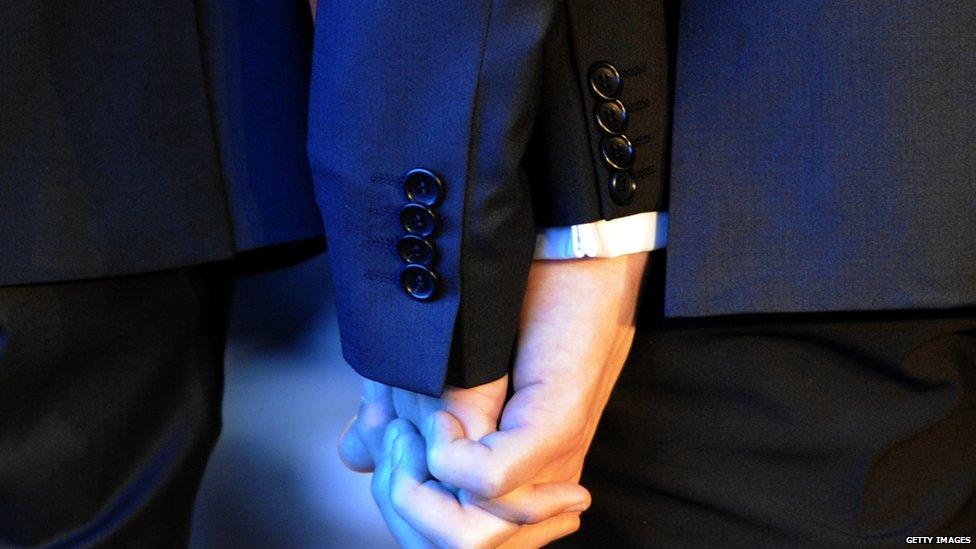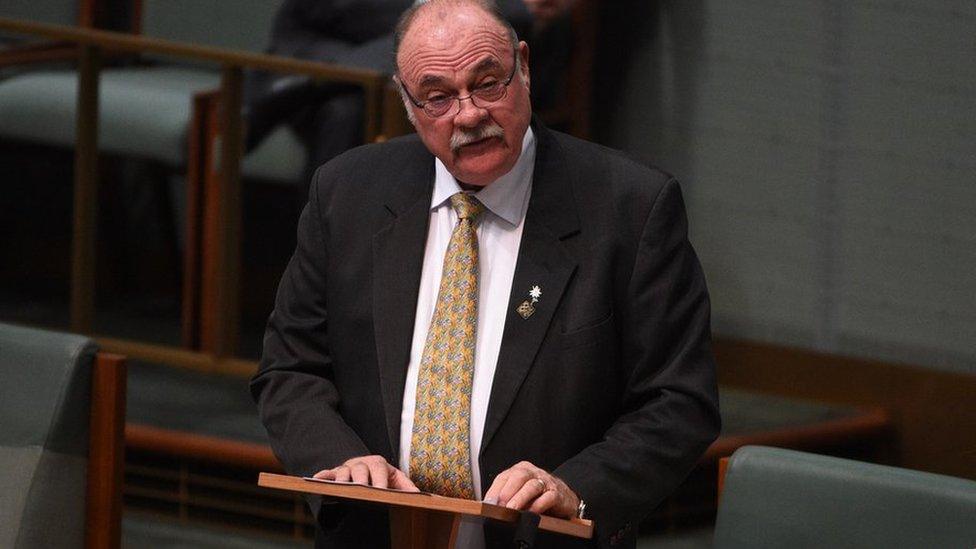Australian senate report calls for gay marriage laws
- Published

Public support for gay marriage has not been backed by Australian politicians
A bill amending Australia's marriage act to allow same-sex marriage should be introduced to the parliament urgently, a report says.
Former PM Tony Abbott said he would hold a plebiscite or "people's vote" after a general election due next year.
The Australian Senate committee report, external said it did not support this because of the cost and possible ramifications for gay people.
Australian law specifies marriage is exclusively between a man and a woman.
The country's new prime minister, Malcolm Turnbull, supports gay marriage and has previously said the government should allow its MPs to vote as they want on any bill to amend the marriage act, rather than following the party line.
However, since toppling Mr Abbott in a party ballot on Monday, he has said a plebiscite is a "legitimate and reasonable approach".
According to the Australian Electoral Commission, holding a plebiscite would cost A$158m ($114m, £73m), the Senate committee report said.

Getting married in Australia
Australia's Marriage Act, external specifies marriage as a union between a man and a woman
Opinion polls taken over the past year show between 60% and 72% of Australians support gay marriage
Officially, the ruling Liberal-National coalition does not support gay marriage
The Opposition Labor party endorses gay marriage, but allows its MPs a conscience vote on legislation

The Senate report, released on Wednesday, noted also that holding a plebiscite could have a damaging affect on gay children or the children of gay parents, especially if the public voted against gay marriage.
"The committee recommends that a bill to amend the definition of marriage in the Marriage Act 1961 to allow for the marriage between two people regardless of their sex is introduced into the Parliament as a matter of urgency, with all parliamentarians being allowed a conscience vote," it said.
Constitutional power
In 2004, the Howard government amended the Marriage Act to define marriage as only between a man and a woman, "to the exclusion of all others".
Since then, 17 bills dealing with marriage equality or the recognition of overseas same-sex marriages have been introduced into the federal parliament.
Not all bills have come to a vote and no bill has progressed past the second reading stage.
The report noted that the outcome of a plebiscite does not bind the parliament, and that the High Court had ruled that the parliament had the constitutional power to pass legislation with respect to same-sex marriage.
"On the basis of the evidence before the committee and the experience, concerns and expertise of submitters and witnesses, the committee does not support a plebiscite or a referendum on the matter of marriage in Australia," the report said.
- Published17 August 2015

- Published12 August 2015

- Published25 August 2015
